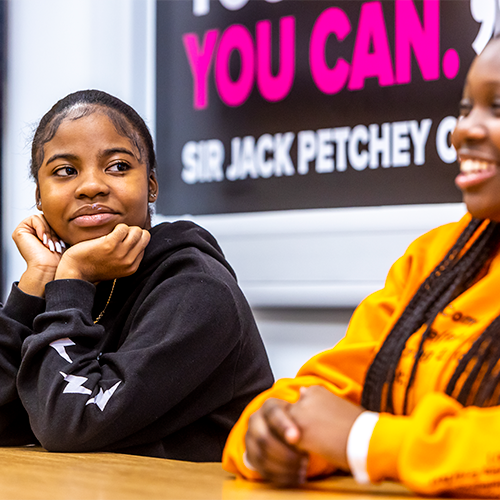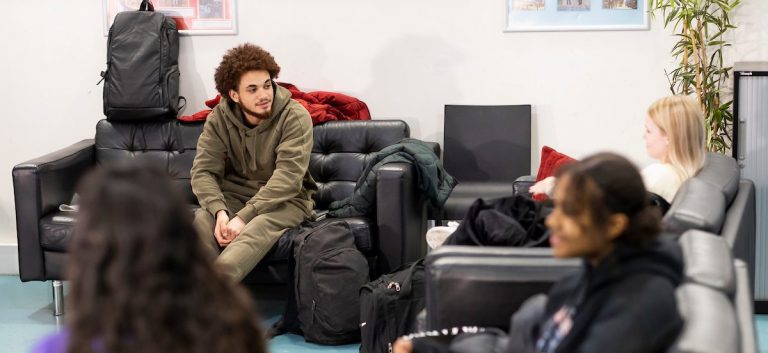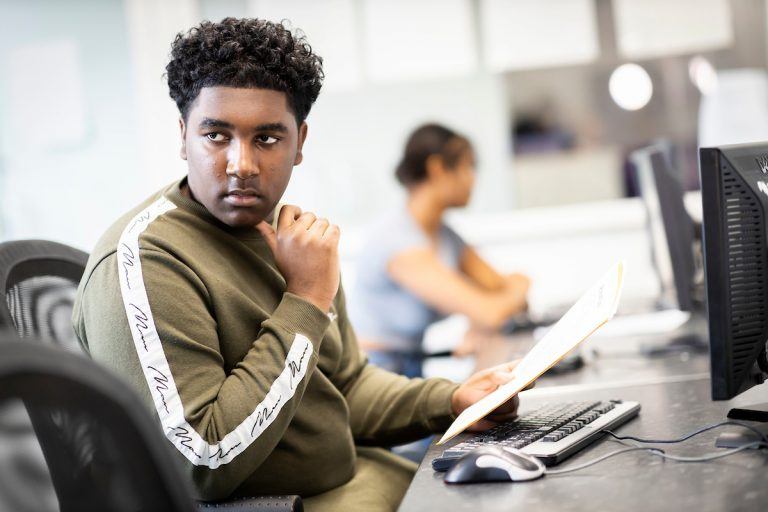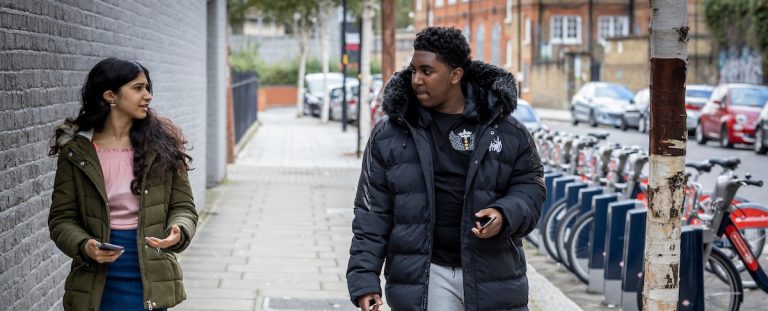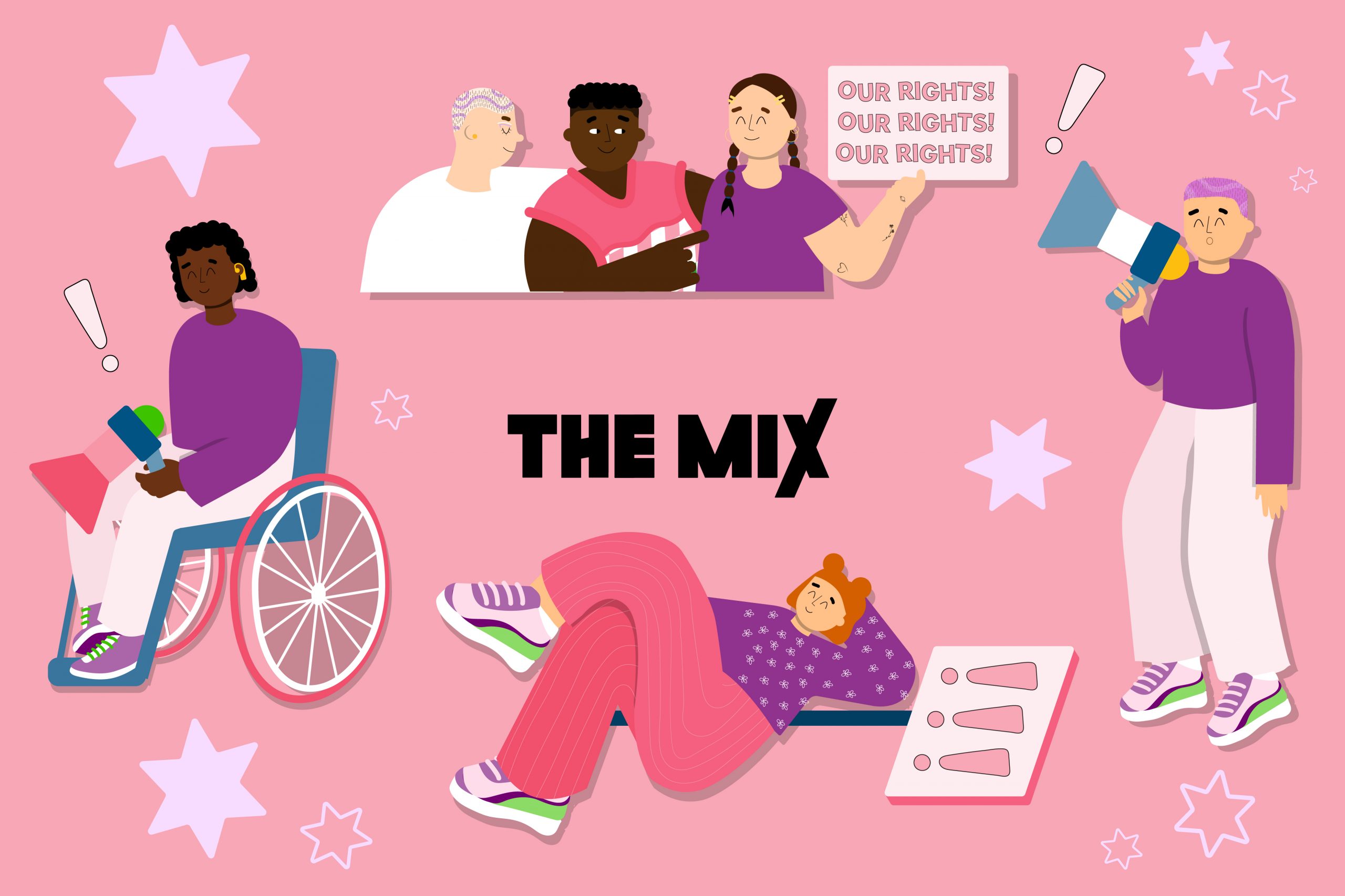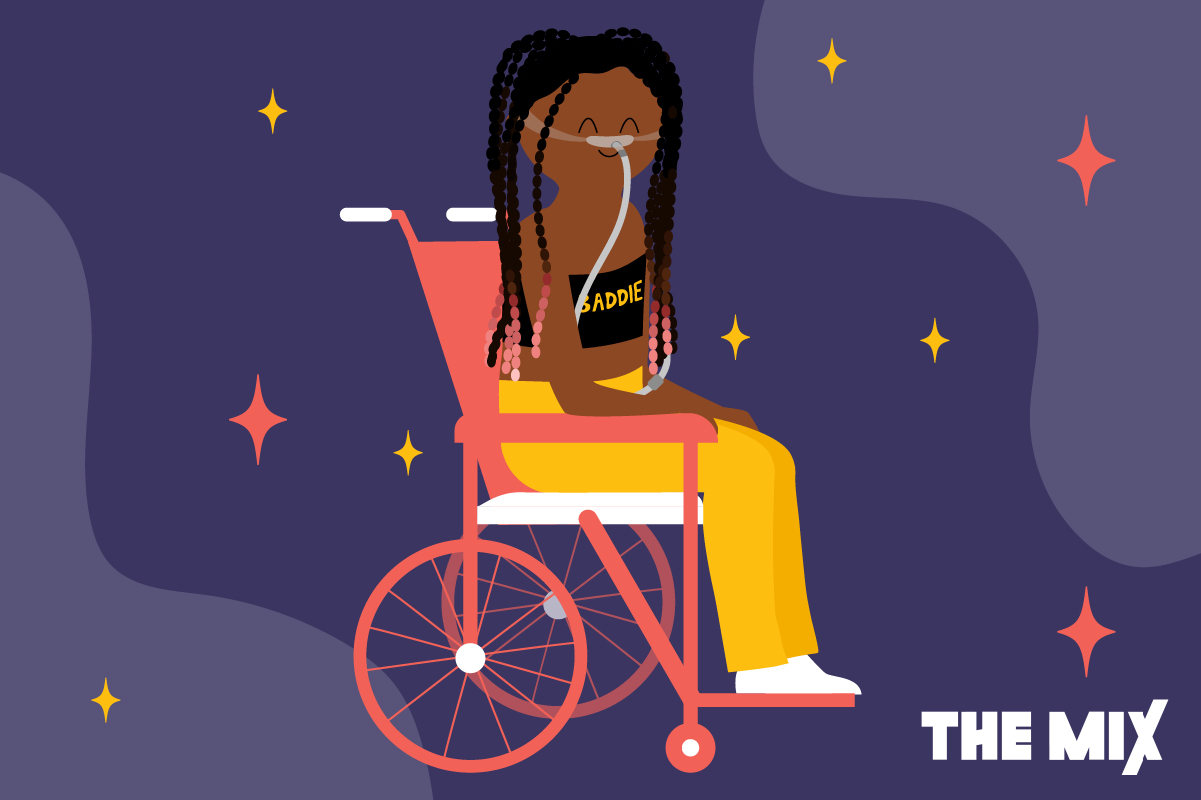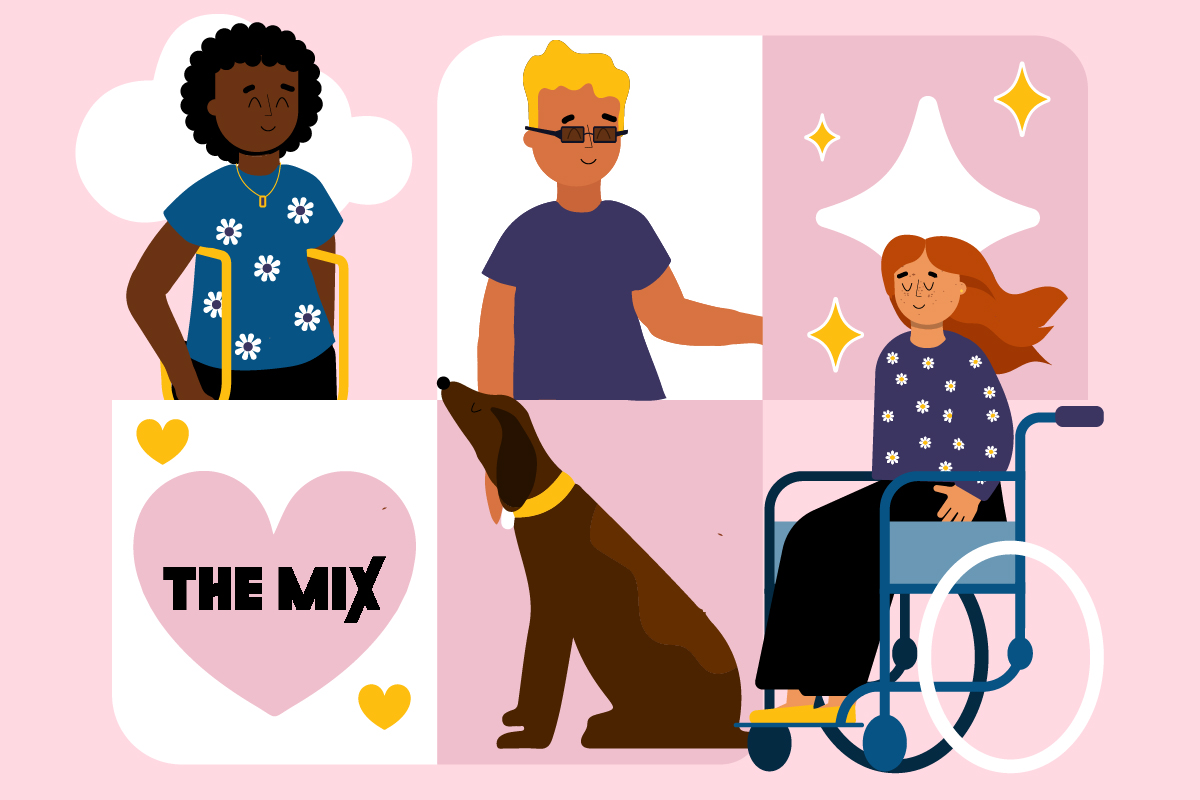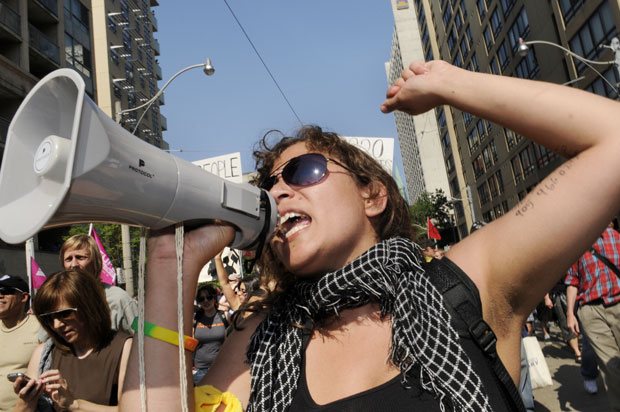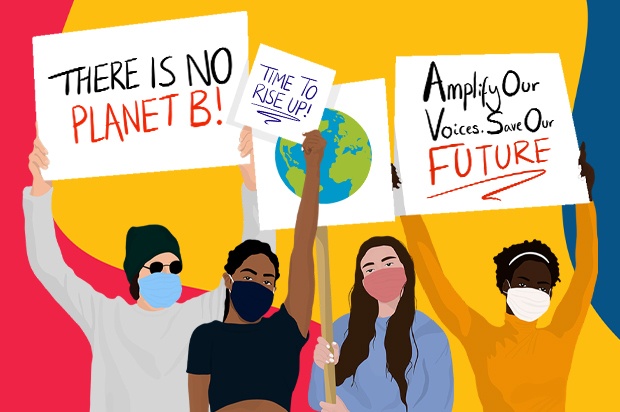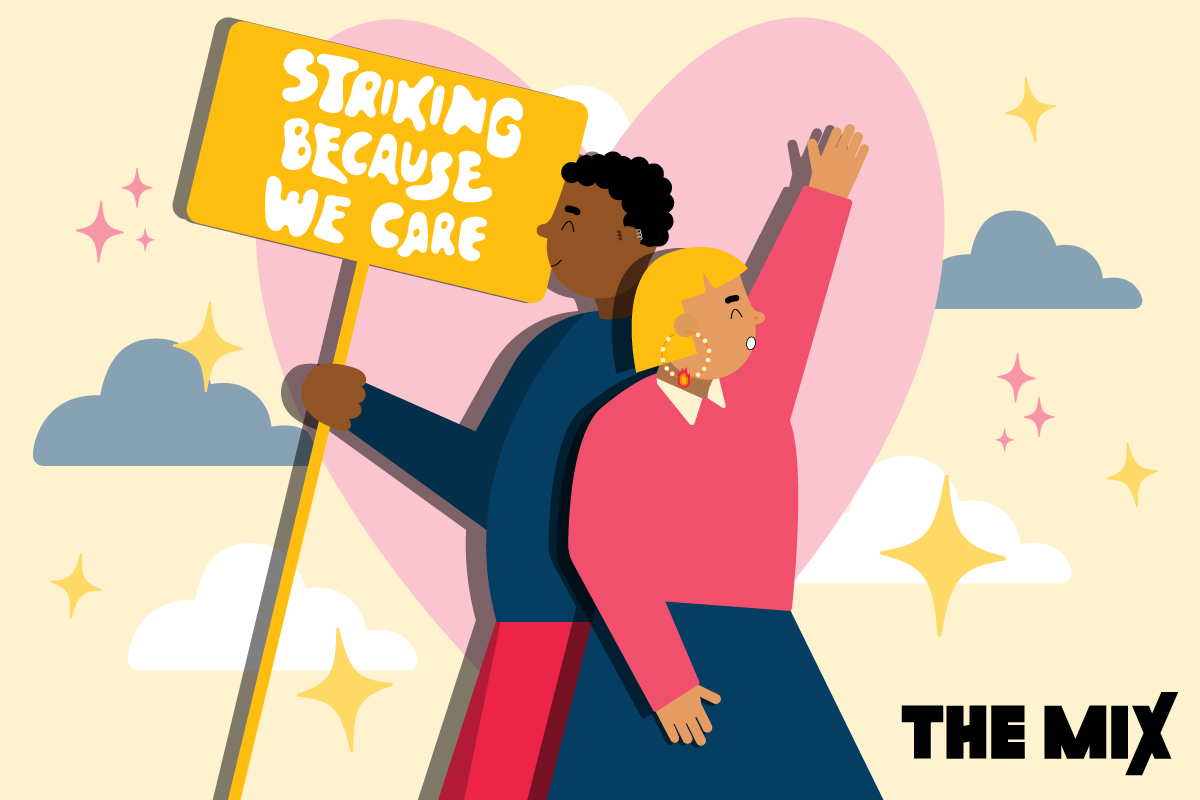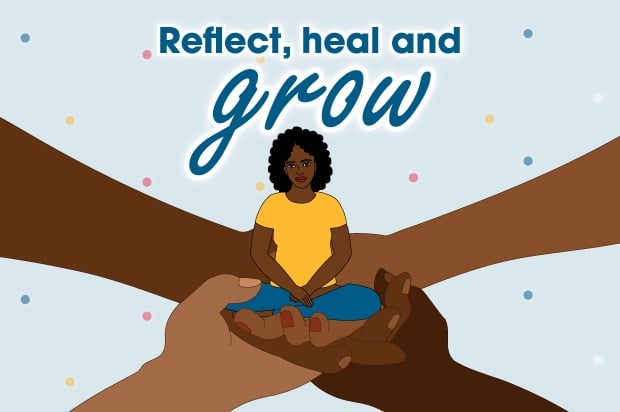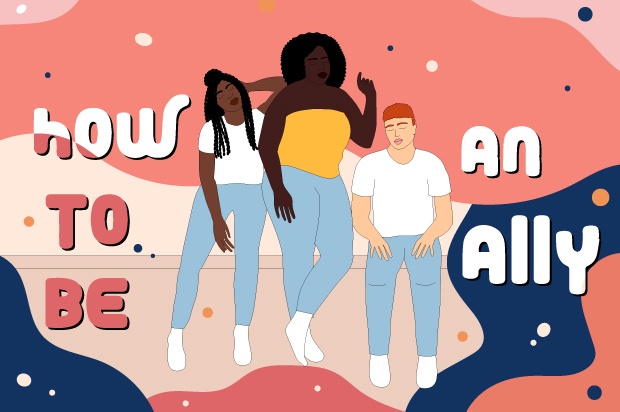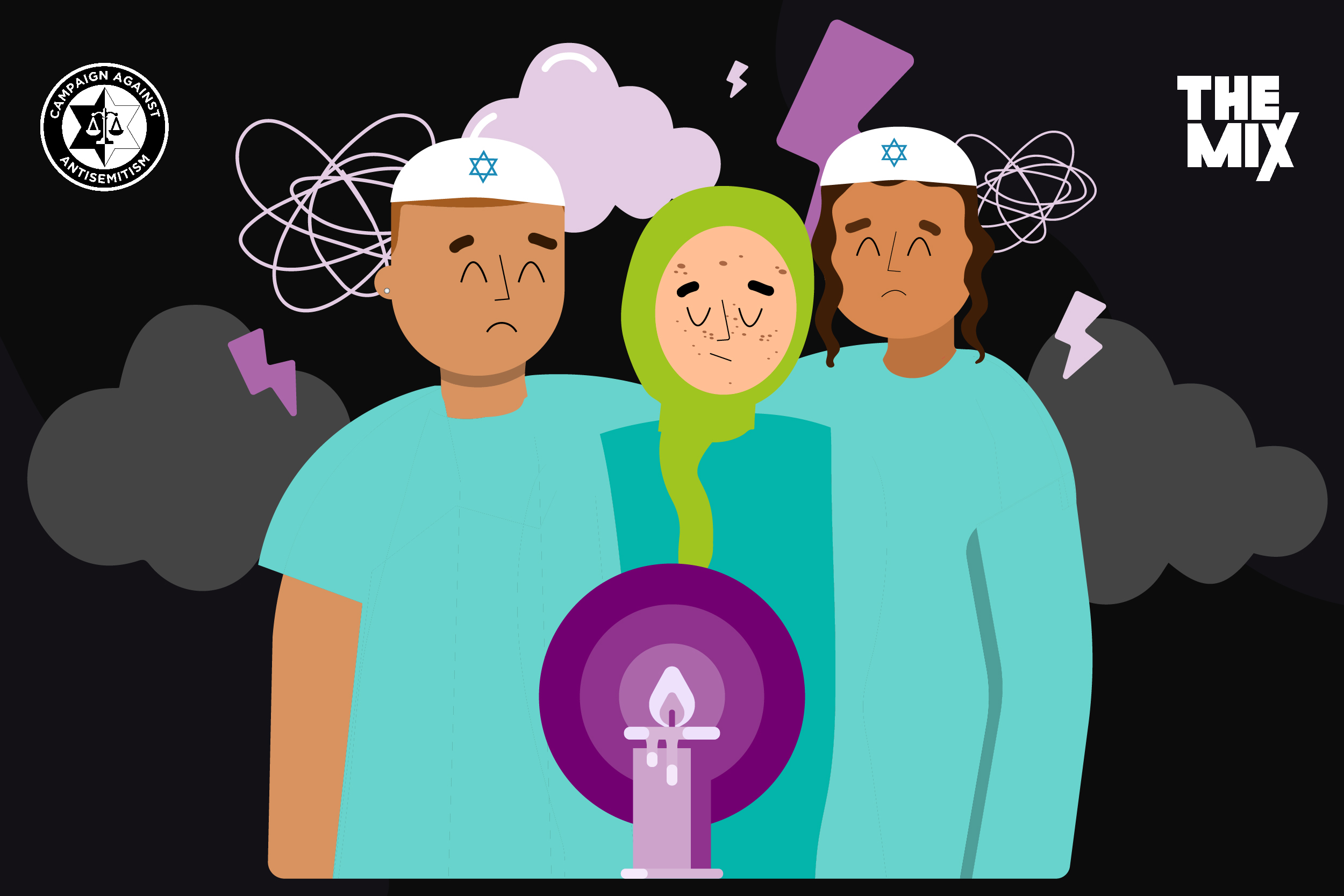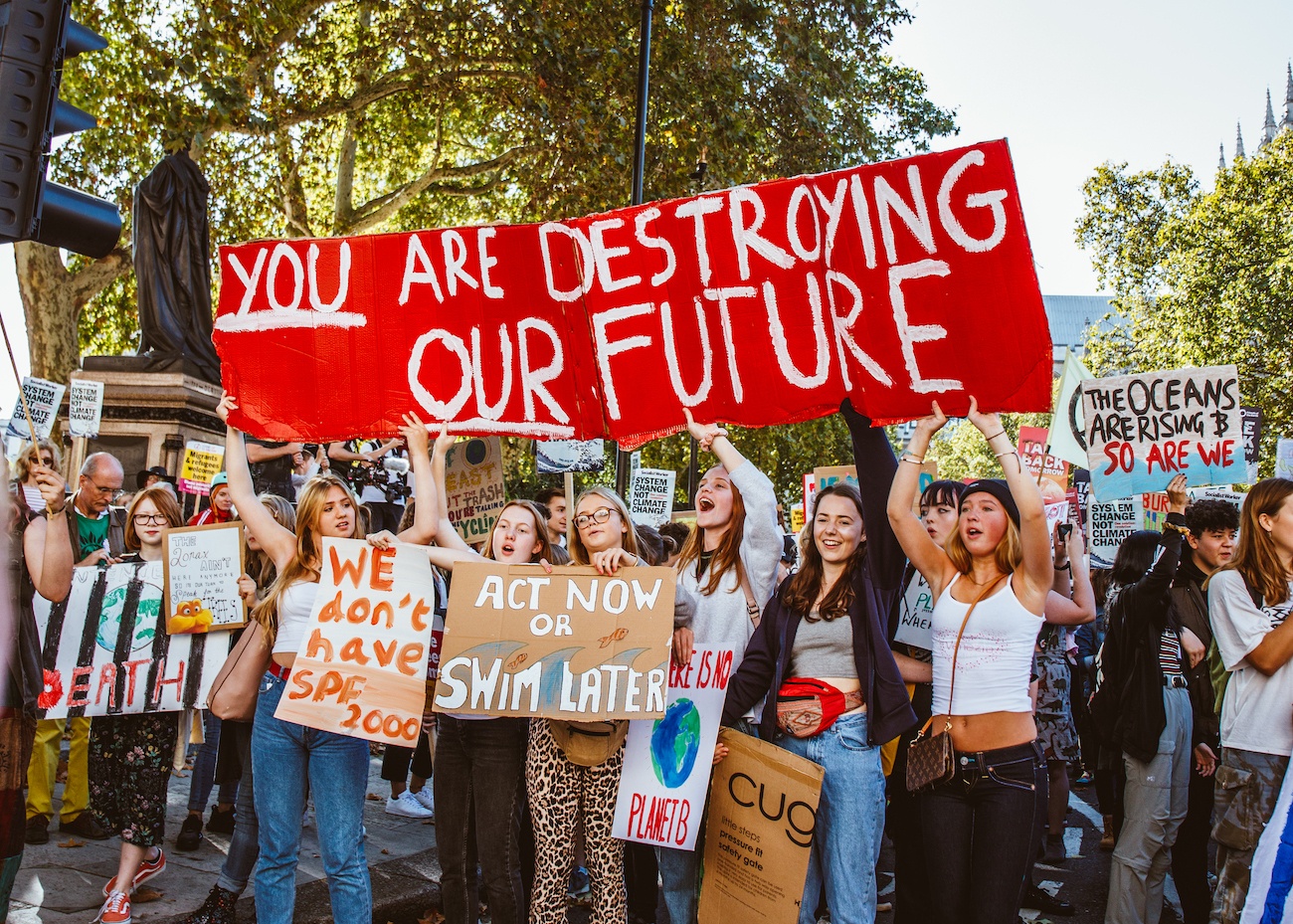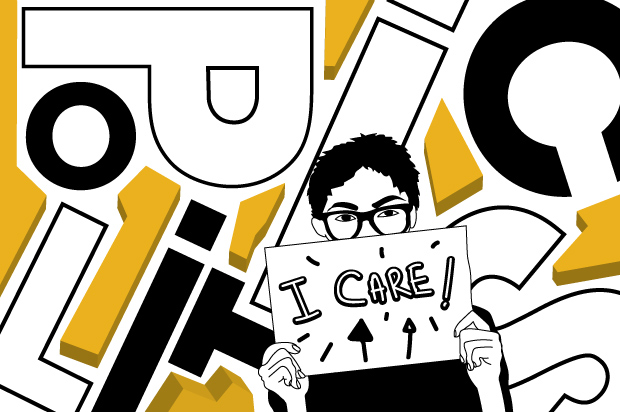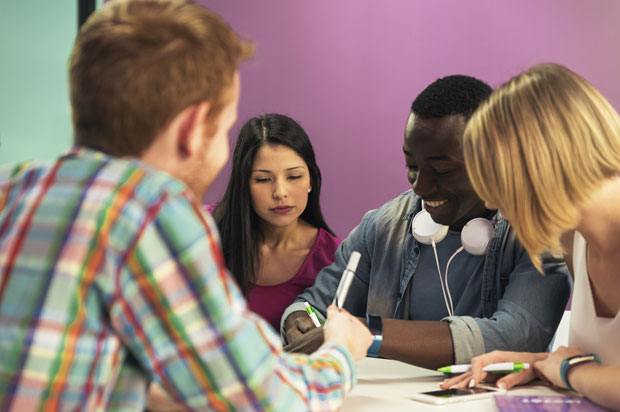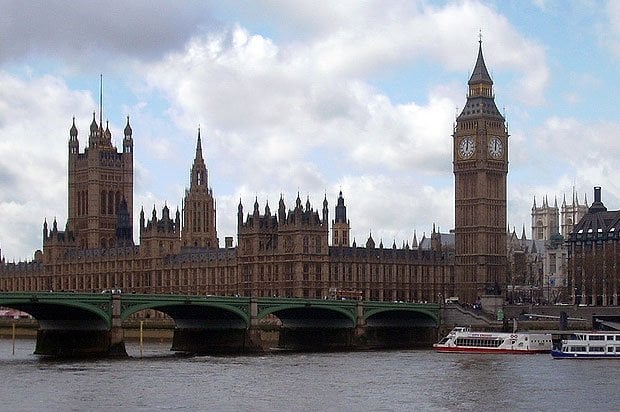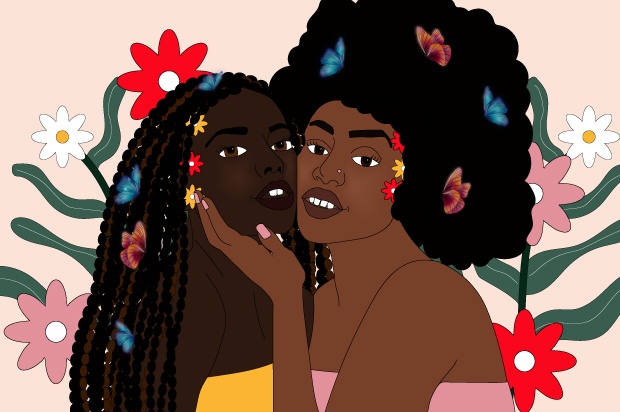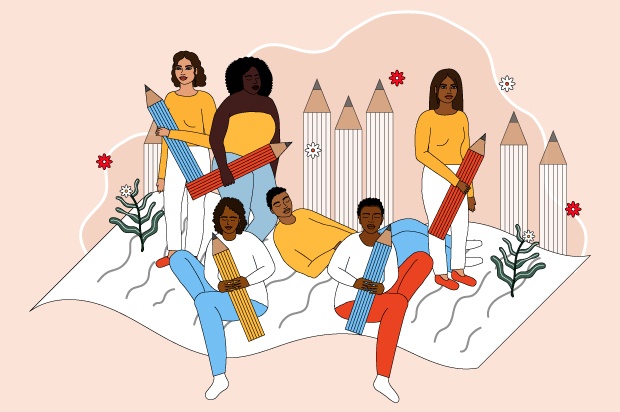How can I get involved in activism?
What is activism?
Activism is when individuals or communities of people work to create change or solve a problem, through taking action on behalf of an issue they care about. This can take lots of different forms, and anyone can do it! Here are some tips from Sharvari, a volunteer at The Mix, about simple ways to get involved in activism.
How can I get involved in activism?
Tips for creating meaningful change in a way that feels right to you.
Find a cause that YOU are passionate about
You can’t change everything that’s wrong in the world, but you can make an impact on a niche issue of your choice. You could even start your own campaign.
Find like-minded people
You can’t make change all on your own and this can be tough and overwhelming, so work together and, who knows, you might even make some friends in the process!
Start small
Volunteer an hour a week, have a conversation with your friends or family, write a blog or help plan a campaign for The Mix – these are all ways to make a change.
Remember that you are in control
You can choose how much time you give and where, which can change depending on what’s going on in your life. It’s ok to take a break and come back to it.
Young people fighting racism
We went out to capture the voices of young people who were at a Black Lives Matter protest and interviewed some of the amazing young protesters. Watch this video to find out more about why so many young people turned out to speak up against racism.
Top articles
What's our community saying?
FAQs
What is a strike?
If you’re wondering what the definition of a strike is, it’s basically a form of protest where workers agree to stop working to make a point about work conditions and/or pay. It isn’t anything new, but you may have noticed more people talking about it recently because lots of workers – from nurses, teachers and midwives to train drivers and postal workers – have been on strike, expressing their frustration with working conditions. Here we explore the ins and outs of striking.
Why do people strike?
Striking has been on the news a lot recently and you might be wondering, why are there train strikes all the time? In the past, before strikes and trade unions were a thing (more on trade unions in a minute), working conditions were pretty damn awful. People worked long hours, doing physically tough work for really poor pay. Striking came along and gave working people the opportunity to make a stand, demonstrating they weren’t happy with the way they were being treated.
In the past, strikes have successfully led to equal pay for women, better working conditions for miners and pay increases for nurses and doctors. Today, the main reasons people strike are around:
- Long and unfair working hours
- Safety in the workplace
- Pay and pensions
- Better working conditions
Strikes don’t always work, and workers don’t always get what they believe they deserve, but striking does send a powerful message to their employer, the government and the public that they are unhappy with the way they are being treated.
What is an activist group?
An activist group are people who’ve joined to create change through taking action on behalf of an issue they care about.
Some groups are organised by larger charities or lobbying organisations. For example, Greenpeace organises a lot of its activist work by communicating to local branches through its’ HQ.
What do activist groups actually do?
Usually, the main activities include:
- Protests and marches
- Street campaigning to raise awareness
- Digital campaigning such as online petitions, social media and emails to MPs
- Political lobbying
- Mass action e.g. asking the public to participate in a planned event
- Occupying spaces e.g. sitting in the middle of a road to raise awareness of an issue
How to join an activist group
You can usually find information about local meet ups by searching on the organisation or group’s website, or on their social media channels.
What are my rights if stopped by the police?
It’s important to understand your rights when stopped by the police. If a police officer stops and searches you under section 1 of PACE, which includes public streets, you have the right to request a copy of the search record. This record provides information about the search and serves as a record of the interaction.
You also have a right to ask for the officer’s name and police station, what they expect to find, for example drugs, the reason they want to search you, for example if it looks like you’re hiding something, why they are legally allowed to search you and how you can get the copy of the search record.
Do I have to answer police questions?
You don’t legally have to answer the police’s questions. However, cooperating and answering them could potentially mean there’s no need for a search. Ultimately, the choice to answer questions rests with you.
What are my rights during a police search?
Different types of searches have specific guidelines about where they can take place. While you can’t prevent a search if it’s required, it must be carried out legally. For example, a strip search should never take place in public view.
If you feel that a search isn’t being conducted properly, you can make a complaint.
How can I stay safe at a protest?
Don’t go it alone
Protesting can be tiring and scary. Make sure you take a friend – someone you trust, who’ll look after you. Bring water, warm clothes if it’s cold and snacks – getting kettled for hours can be a hungry business.
Learn more about joining an activist group.
Use cameras wisely
Sometimes it can seem like there are more cameras than protesters, but remember some people might not want to end up on Facebook or YouTube. Ask before you snap a fellow protestor. The police can stop you taking a picture if they have reason to suspect you might be involved in terrorism.
Use social media – but carefully
Use social media to keep in touch and find out what’s happening in real time. Protesters usually decide on a hashtag to keep each other updated. Watch out for rumours though – not every tweet is true.
Be aware that the authorities have pretty much learned how to use social media too, and that they might use it to bluff or play games. They can also listen in and track you on your mobile phone and get Internet Service Providers (ISPs) to hand over your data. This usually only happens if you’re considered to be an organiser or heavily involved in a particular protest movement. If you’re just along for the ride you’ll probably be left alone, but you should still be careful about what you post on social media.
Write the legal support number on your arm
Most big protests will have a legal support number to call if you’re arrested. It’s sensible to write this number on your arm (so you have it even if your bag and phone are confiscated). Legal support will help arrange a solicitor for you and advise you about the legal process.


